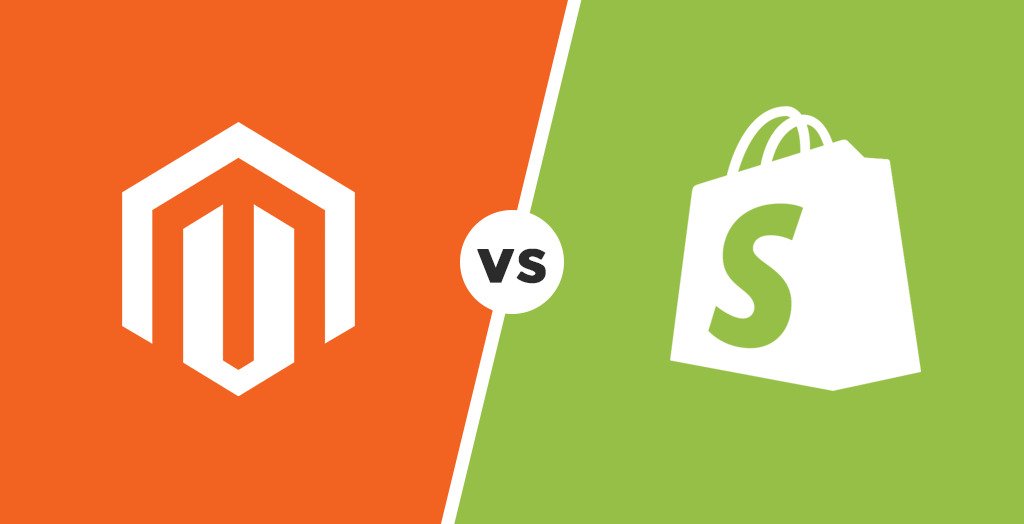
When it comes to building an online store, choosing the right e-commerce platform is crucial for long-term success. Among the most popular platforms, Magento vs. Shopify is a common comparison, as both offer powerful features tailored to different business needs. While Shopify is known for its user-friendly approach, quick setup, and hosted environment, Magento provides unparalleled customization, scalability, and control, making it a preferred choice for businesses that require more advanced functionalities.
However, for businesses focused on long-term growth, scalability and flexibility are the two most important factors to consider when selecting an e-commerce platform. Scalability ensures that your online store can handle increased traffic, product expansions, and growing customer demands without compromising performance or user experience. Flexibility, on the other hand, determines how well the platform adapts to your unique business requirements, allowing for custom features, integrations, and modifications to support your evolving needs.
While Shopify offers a simplified approach with built-in tools for easy store management, Magento allows greater control over the site’s structure, making it ideal for enterprises with complex operations. In this article, we will compare Magento vs Shopify in terms of scalability and flexibility to help you determine which platform best suits your business, whether you’re a startup, a growing brand, or an enterprise seeking a robust e-commerce solution.
Magento vs Shopify: Understanding Scalability in E-commerce
Scalability refers to a platform’s ability to grow with your business. As your store gains more customers, products, and transactions, your platform must be able to handle this growth without performance issues. Let’s examine how Magento and Shopify compare in terms of scalability.
Magento Scalability
Magento is widely regarded as one of the most scalable e-commerce platforms, making it an excellent choice for businesses that anticipate significant growth. Since Magento is self-hosted (Magento Open Source) or cloud-based (Magento Commerce), businesses have full control over server resources, allowing them to scale their infrastructure as needed.
Magento can handle thousands of products and high traffic volumes without compromising speed or performance, provided it is optimized correctly. Large enterprises, such as global brands, prefer Magento because it can support multiple storefronts, complex product catalogs, and advanced integration. However, scaling a Magento store requires technical expertise, as businesses must manage hosting, performance optimization, and updates.
Shopify Scalability
Shopify is a fully hosted platform, meaning all the backend infrastructure, including server management and performance optimization, is handled by Shopify. This makes it a hassle-free solution for small to medium-sized businesses that want to scale without worrying about technical complexities.
For businesses with high-volume sales, Shopify Plus offers additional scalability features, including improved API limits, automation tools, and dedicated support. While Shopify Plus can handle growing traffic and product expansions, it may still have limitations compared to Magento in terms of custom scalability and flexibility.
Understanding Flexibility in E-commerce
Flexibility in an e-commerce platform determines how much you can customize and modify the store to fit your business needs. It includes design customization, third-party integrations, and control over backend processes. Let’s compare Magento vs. Shopify in terms of flexibility.
Magento Flexibility
Magento is an open-source platform, giving businesses complete control over their store’s design, functionality, and backend development. With Magento, you can customize every aspect of your online store, from unique product configurations to complex pricing models and personalized customer experiences.
Magento also supports thousands of extensions and third-party integrations, allowing businesses to add custom features, connect with ERP and CRM systems, and create a highly tailored shopping experience. However, this level of flexibility comes with a downside—it requires advanced technical knowledge or the help of experienced Magento developers.
Shopify Flexibility
Shopify offers flexibility in a more structured way. It provides a range of themes, customization options, and third-party apps, but users must operate within Shopify’s ecosystem. While Shopify’s drag-and-drop interface makes it easy to modify store designs, it lacks the deep customization options that Magento offers.
Shopify’s App Store provides thousands of plugins to extend functionality, but businesses relying on highly customized features may find Shopify’s limitations restrictive. Additionally, Shopify’s proprietary coding language, Liquid, restricts developers from making deep modifications compared to Magento’s open-source flexibility.
Magento and Shopify Scalability and Flexibility for Different Business Sizes
Small Businesses and Startups
For small businesses looking for an easy-to-use platform with built-in hosting and minimal maintenance, Shopify is the better choice. Its scalable pricing plans allow businesses to start small and upgrade as they grow. Shopify’s flexibility is sufficient for businesses with standard e-commerce needs, such as selling products online with minimal customization.
Growing Businesses
For businesses experiencing rapid growth, Magento provides better long-term scalability and flexibility. While Shopify can scale up with its Shopify Plus plan, Magento allows businesses to fine-tune performance, add custom features, and integrate with enterprise-level solutions. Businesses with complex product catalogs, global operations, or unique business models will benefit more from Magento’s flexibility.
Enterprises and Large-Scale Businesses
For large businesses with high-volume sales, Magento is the preferred option due to its ability to handle massive traffic, support multiple storefronts, and offer deep customization. Shopify Plus is a viable alternative for enterprises looking for a managed hosting solution, but businesses requiring extensive modifications and custom workflows will find Magento more suitable.
Magento vs. Shopify: Which One Should You Choose?
- Choose Magento if you need full control over customization, advanced scalability, and the ability to handle large and complex business operations.
- Choose Shopify if you prefer an easy-to-use platform with built-in hosting and scalability for a growing business without needing technical expertise.
To sum up, in the debate of Magento vs Shopify, both platforms offer scalability and flexibility, but the right choice depends on your business’s needs. Shopify is a great option for small and medium-sized businesses looking for a simple, scalable solution, while Magento is better suited for enterprises requiring deep customization and control. By understanding scalability and flexibility, you can choose the right e-commerce platform to support your business growth and long-term success.

